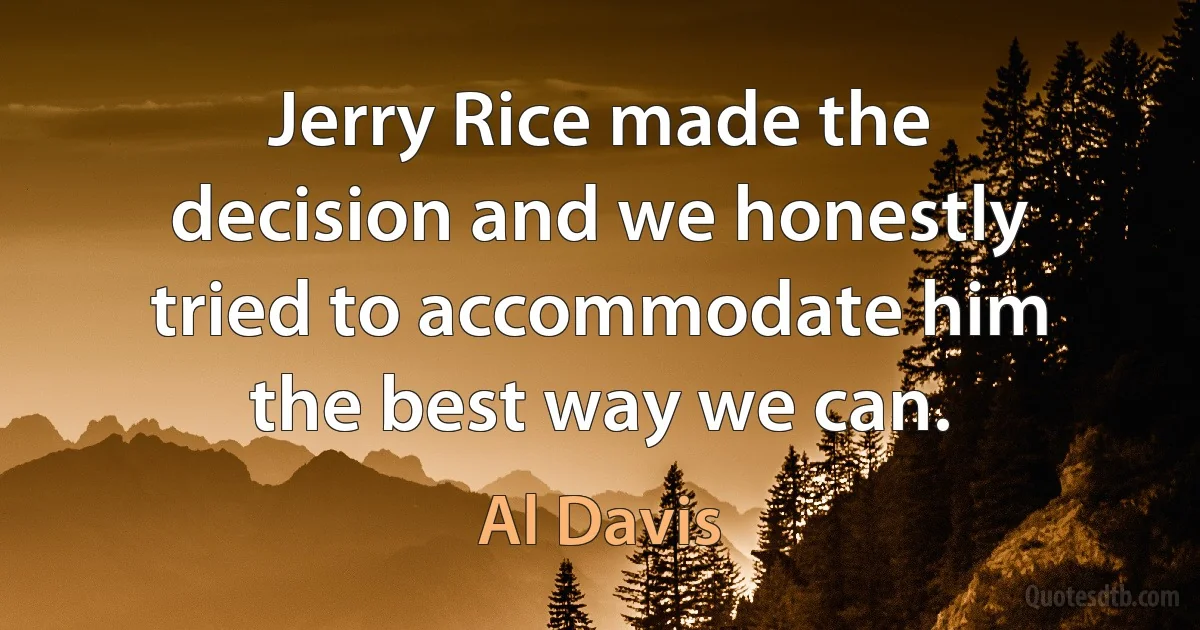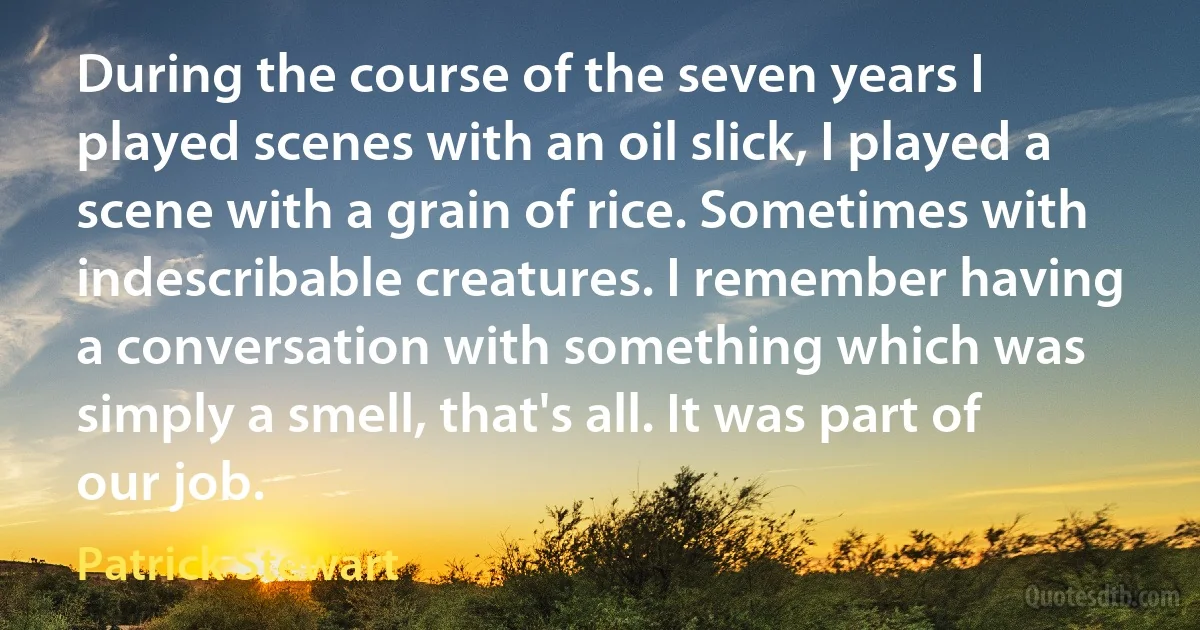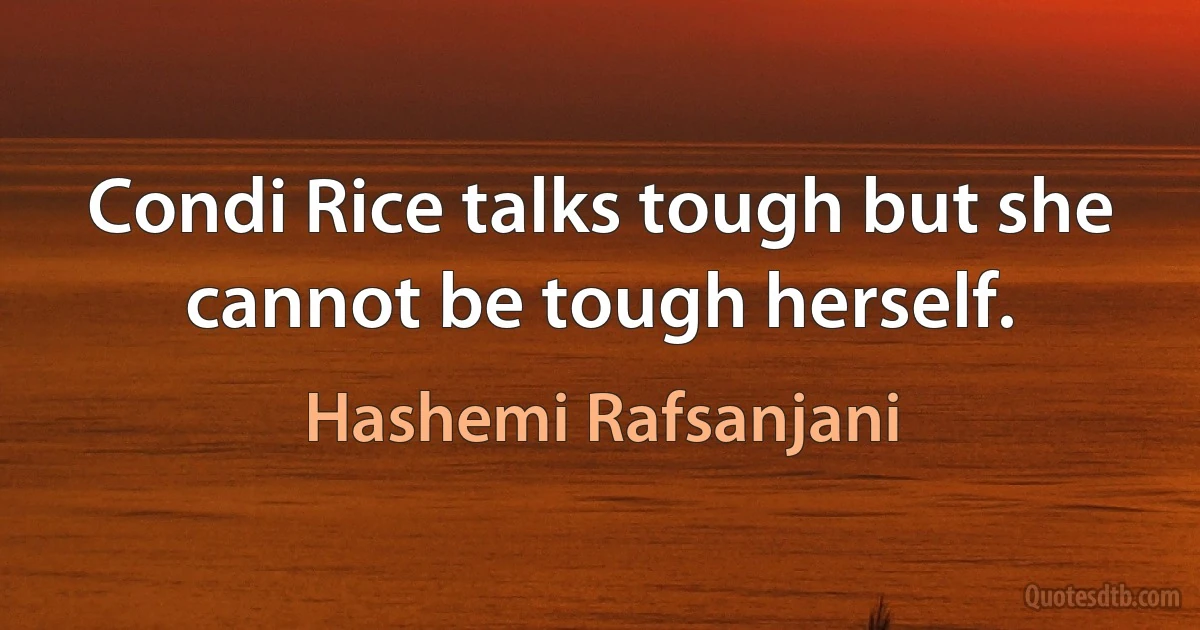Rice Quotes - page 2
My most memorable meal is every Thanksgiving. I love the food: the turkey and stuffing; the sweet potatoes and rice, which come from my mother's Southern heritage; the mashed potatoes, which come from my wife's Midwestern roots; the Campbell's green-bean casserole; and of course, pumpkin pie.

Douglas Conant
In the Java Sea in Indonesia, I have seen fishers going out in the morning, six of them going out and coming back with five pounds of fish. That is the end point, a pound of fish per person per day to sell for rice. That's where fisheries go if you let it happen. That's where it stabilizes. These people cannot feed their families.

Daniel Pauly
The average Briton, as well as honorable and right honorable members of the House, had known that England possessed colonies and had understood that colonies, as a matter of course, existed to supply him with sugar and rice, indigo and tobacco, and in return to buy at a good price whatever he might himself wish to sell.

Carl L. Becker
I'll have ten grams of rice, Mrs. Bass interrupted, one tenth of a hectogram of shrimp vindaloo, a dekagram of chana aloo masala, one thousand centigrams of tandori salmon, four samosas with surface area of nineteen cubic centimeters, five deciliters of mango lassi, and a sada rava dosai that's exactly nineteen centimeters long.

Daniel Handler
Our country is suffering from the lack of food. We don't have rice for the military. Our country is in a state of anarchy because of the dysfunctional food rationing system. The administration department is responsible for this mess, as well as the Party officials. The Party's Central Committee members have failed their duty in generating a revolutionary spirit, diminishing the Party's effectiveness. We must solve the food problem according to socialist principles, and we must not rely on individuals. If we let the people solve the problem on their own, only merchants and markets will prosper. Then, selfishness will rule our society and destroy our system of true equality.

Kim Jong-il
The attack should not have happened, of course. The rice farmer sergeant had been perfectly right; the Federation could not afford to risk its own great cites to punish the villagers of Venus. He was right-from his viewpoint.
A rice farmer has one logic; the men who live by and for power have another and entirely different logic. Their lives are built on tenuous assumptions, fragile as reputation; they could not afford to ignore a challenge to their power-the Federation could not afford not to punish the insolent colonists.

Robert A. Heinlein
In Southeast Asia the world is understood to be a vast, complex network of interdependent relationships. So when global capitalism makes it impossible for small-time rice farmers to feed their families and make a living, it is a natural thing for anyone in the family who can find an alternative source of income to do so.

John Burdett
It is truer today than when Alfred Nobel realized it a half-century ago, that peace cannot be achieved in a vacuum. Peace must be paced by human progress. Peace is no mere matter of men fighting or not fighting. Peace, to have meaning for many who have known only suffering in both peace and war, must be translated into bread or rice, shelter, health, and education, as well as freedom and human dignity - a steadily better life. If peace is to be secure, long-suffering and long-starved, forgotten peoples of the world, the underprivileged and the undernourished, must begin to realize without delay the promise of a new day and a new life.

Ralph Bunche
(On the prospect of Thatcher's death) Be serious - this is just a fantasy, because if she were killed, would it actually make any difference? Would things get any better? Course they wouldn't; don't kid yourself. They'd get worse, because she would become a martyr – this monetarist martyr - a cult figure, like Eva Peron. Can you imagine the televised funeral? There she'd be, laid out in a glass coffin, in the blue gear, the hair-do and all the rest of it. She'd be laying there just really life-like - just like she was in life - a bit warmer. It would be on the telly. You thought Winston Churchill was bad; you can imagine what this would be like. And then, of course, it wouldn't stop at that. There would be films - The Night Brighton Rocked. There'd be musicals. Tim Rice would be churning out the musicals about her life - Magita. There'd be Elaine Page belting out the big numbers: 'Don't Cry for Me, Barnet Finchley.

Linda Smith
I had a sudden longing, like a pain, for the hot smelly East, and remembered that Everett had said something about an Indian restaurant. I asked the barman, a hot-haired Irishman, and he asked one of the business-men (who, I saw now, was a Pakistani) and then was able to tell me that the Calicut Restaurant was on Egg Street, by the Poultry Market. I went there and ate insipid dahl, tough chicken, greasy pappadams, and rice that had congealed to a pudding. The décor was depressing – brown oily wallpaper, a calendar with a Bengali pin-up (buff, deliriously plump, about thirty-eight) – and it was evident that the few Indian students were eating the special curry prepared for the staff. The manager was from Pondicherry : he caled me ‘monsieur' and was not impressed by my complaints. At least one of the waiters was from Jamaica. I went out angry and, at a pub where the landlady sniffed in curlers, drank brandy till closing-time.

Anthony Burgess



